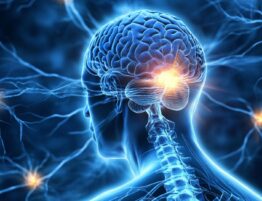Most people have experienced nervousness and stress at some point in their lives. This state is caused by stressful situations, overwork, and challenging situations we face. Stress is a protective reaction of the organism to various factors. Often, it allows us to make quick decisions and fight in different situations. However, constant and frequent stress has a very negative impact on the human body. It can affect the development of depression and other diseases. Our mental health declines, and we constantly feel irritated and angry. It is essential to understand how stress affects memory and concentration.
Constant stress can have a negative impact on memory. Over time, it deteriorates, and a person may not understand what exactly became a factor. Chronic stress triggers the release of adrenaline and cortisol. It is cortisol that eventually damages the brain and memory. Often, a person becomes disorganized, loses concentration, and has a poor attention span. Our brains can become overloaded when we are constantly under stress. This condition causes poor attention and concentration, and at this time, a person also feels stressed. It is important to understand why such a condition can occur, which leads to a number of mental disorders.
How Stress Affects Memory: The Science Behind It
It is important to understand how stress affects memory and learning to know how to solve this problem. Over time, stress has a negative impact on the entire brain. It mainly affects the parts of the brain that are responsible for our memory. Over time, a person may not feel very well and may not remember certain things. Cortisol is released during long-term stress. To some extent, it is even useful because it helps a person to act correctly. These actions are manifested in emergency situations. For example, a person sees a pack of dogs, and when cortisol is released, they can make the right decision. On a regular basis, stress is a negative factor that affects our memory. It is important to understand how stress affects memory and its physiological effects.
- Short-term memory. This memory can be lost with the onset of aging or stress. It usually manifests itself in forgetting something small and recent. For example, information you recently heard or the title of a movie. This kind of memory loss is associated with recent, non-serious activities.
- Long-term memory. This kind of memory loss can cause serious illnesses, including dementia. It is characterized by the constant forgetting of specific information from the past. Often, in this condition, a person constantly forgets things, including words and sentences.
In our brain, there is a hippocampus, which is very important for memory and memories. Stress-induced cortisol release can lead to memory impairment. This situation has a serious impact on both short-term and long-term memory. It is essential to know how stress affects memory and learning in the long term. It is a factor in memory loss associated with forgetting information and actions. It becomes difficult for a person to recall something, learn and memorize. Stress has a severe impact on long-term learning.
Short-term vs. Long-term Memory Effects
Memory loss resulting from stress most often affects and has negative consequences. Stress causes negative feelings in the future, which contributes to the onset of stress. It results from constant worry, various unpleasant situations, and fear. It affects both short-term and long-term memory, and it is important to understand the difference between the two.
- Short-term memory. This memory is essential in everyone’s life. Short-term memory is responsible for specific actions in the process of any task. You can memorize an order number, phone number, or a specific date for a certain period of time. This memory is essential for focusing on a task. Short-term memory loss can manifest itself in forgetting something specific. For example, if you want to buy something, go to a store and forget what you want to buy.
- Long-term memory. Memory loss resulting from stress most often affects and has its consequences. This memory is characterized by the past and complete information. A person’s experience and skills are also relevant to long-term memory. Certain events in the past or some significant event or story. The loss of such memory carries a lot of negativity and causes even more stress. You may forget the names of people you know well or parts of your experiences. Regular or constant stress can cause you to forget important information.
The Role of Emotional Stress in Memory Retrieval
Memory loss resulting from stress most often affects and causes negative actions. Emotional stress significantly impacts our lives. It affects all of our memories, which mean a lot to us. With constant stress, our memory is impaired, and we often start to forget information. Stress hormones are sometimes useful for taking the right action in extreme situations. However, constant stress is a big obstacle to psychological well-being. It is essential to understand how stress affects memory and its recovery. It is also vital to comprehend emotional memory and stress levels.
- The impact of stress on memory recovery. Emotional stress can trigger our brain’s instinctual responses. This is a kind of defense that negatively affects memory in the future. For example, a person attending a conference knows everything and abruptly forgets essential information. There can also be selective memory when a person remembers only some moments from their history.
- Emotional memory and stress level. This memory helps us recall important emotional moments. The joy of an event, sadness, or fear in the past is reflected in the memory. With constant stress, a person can feel these emotions even more strongly and spoil their mental state. Sometimes, the opposite happens, and a person stops remembering these moments perfectly.
Concentration Challenges Caused by Stress
It is essential to understand how stress affects concentration and what the consequences can be. Stress has a powerful impact on concentration and interferes with thinking. It’s common for people to feel agitated and nervous when stressed. It becomes solid when a person is stressed on a regular basis. This process begins to act in its own way and interfere with concentration. A person is constantly distracted and cannot concentrate on a particular task.
- Cognitive overload. This condition is characterized by a large amount of information. The human brain does not have time to process this amount of data, and pressure is applied. This condition is aggravated when a person does many things at once. During such an action, the brain does not have time to process all the information, and stress increases.
- Decreased productivity. It is important to know how stress affects concentration and why productivity decreases. When there is a lot of stress on the brain, concentration decreases. A person becomes nervous, and everything seems difficult and confusing. Stress and irritability affect a person’s psychological state. This effect increases the decrease in concentration and, in turn, the decrease in productivity. Special tasks, unloading, and some other actions help to reduce this condition.
Strategies to Mitigate Stress and Improve Memory and Concentration
Understanding how stress affects concentration and memory will help you find a solution. Stress has a negative effect on our brains, which is influenced by many factors. To avoid it and control it, you need to deal with it properly. Some good tips will be a successful step towards solving the problem. Here are the most important ones:
- Relaxation techniques. It is essential to understand that meditation and aromatherapy have a positive effect on our state. The brain receives signals of calmness and relaxation. These practices will help you effectively deal with stress and eliminate its impact. Set aside a few hours a week for these practices, and you will notice the result.
- Exercise. Physical activity has always been considered not only beneficial for health but also for psychological well-being. Exercise has a number of benefits and is a great way to fight stress. Memory loss resulting from stress most often affects, so a few hours a week will give a good result.
- Sleep. Healthy sleep is the key to a successful person with a strong immune system. Regular sleep will help you feel better and reduce stress from various factors. Everyone should get about 8 hours of sleep for good health. Sleep is also essential for the brain, so don’t neglect it, and you will feel good.
- Time management. The best step to avoiding stress is to organize your time. You can write down all your goals for the day on your phone or in a notebook. This time management will help you understand what needs to be done, and you will avoid stress and overload.
- Healthy eating. A healthy diet is key to overall well-being and reducing the effects of stress on the brain. Eating healthy and wholesome foods will help you get the correct dose of vitamins. It will also make you feel good, and this, in turn, will help reduce stress.
The Importance of Seeking Help When Needed
Understanding how stress affects memory and stress will help you deal with it. There are life tips that help you deal with stress. Often, a person cannot cope with this problem on their own. In such cases, you should turn to professionals to help solve the problem. Therapy and counseling are the best ways to overcome stress. Doctors will help you figure out the cause and prescribe the proper treatment. Therapists are characterized by helping you and creating the necessary conditions. Doctors will help you learn how to deal with stress adequately. This approach will help you care for your health and protect your psychological state.













I've given up... the stress her office staff has put me through is just not worth it. You can do so much better, please clean house, either change out your office staff, or find a way for them to be more efficient please. You have to do something. This is not how you want to run your practice. It leaves a very bad impression on your business.
Please, leave your review
Write a comment: